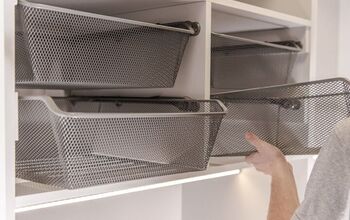Why You Can’t Stick to a Budget (And How to Get Over It)

You’ve read all the financial gurus’ books. You set up a fancy spreadsheet to track your spending. You follow 20 personal finance blogs. You’ve even switched to a cash envelope system. Still, your budget just isn’t panning out.
Sound familiar?
When I first got serious about personal finance, I dedicated myself to following all of Dave Ramsey’s teachings. You know: ditch the credit cards, pay down debt, focus on frugality, and use a cash envelope budgeting system.
Paying off my debt and swearing off credit cards was the easy part, but when it came to budgeting, I failed miserably.
I’ve tried many different budgeting methods over the past seven years, and I’ve discovered there’s no “one size fits all.”
Here are three common budgeting problems you might have (and how to solve them):
1. You can’t stick to the cash envelope system
Neither can I. My first personal finance strategy was simple: follow all of Dave Ramsey’s advice.
The problem, though? Ramsey claimed I would feel the sting of spending cash – but I didn’t. To me, letting go of cash was simple and, therefore, it went fast. My cash envelopes would be depleted before the month was halfway over.
For me, using my debit card was painful. I’d be extra cautious before swiping because I knew the money was coming out of my bank account. Then when I balanced my checkbook, I’d feel that sting again.
Solution: Using the cash envelope system can be beneficial, but it’s definitely not for everyone. If you spend cash like you drink water, then try using your debit card. You can link your checking account to a free service like Mint.com and monitor your spending in different budget categories.
2. You think budgeting is too complicated
Budgeting is only as complicated as you make it.
Some people are awesome at plugging numbers into fancy spreadsheets and staying on top of every penny that comes their way. To them, budgeting is fun.
Just because somebody else uses a fancy spreadsheet doesn’t mean that you need to – especially when you’re just starting out. For most people, the simpler the better.
Solution: Trick yourself into budgeting. Set up your bills with automatic payments and have your savings (for short and long-term goals) automatically taken out of your paycheck. By doing this, there’s virtually no work for you. You won’t have to worry about budgeting because all of the important stuff is already taken care of. However, if you do this, it is also important to check your accounts at least once a month to make sure you’re not being overcharged for anything.
3. You have a budget deficit
I’ve been there. It sucks.
You’re not making enough money to pay all of your bills. Something’s gotta give and you’re not sure what it is. You have no breathing room.
In this case, it’s important for you to focus on the things you can control.
Solution: Take a good look at your finances and cut out all the non-essentials. If you still have a deficit, start by paying for the basics: food, shelter, utilities, and transportation.
If you have money left over after that, start covering your debt. Pay at least the minimum payments so you’re not hit with late fees. Negotiate on any bills possible, then start looking for ways to earn more money. Take a second job, work more hours, or freelance. If you need to, apply for temporary government assistance until you get back on your feet. Concentrate on the things that are in your control and do what you have to do.
These are the budgeting problems I’ve come across over the past few years. When it comes to budgeting, there’s no single solution for everyone. Learn as you go and develop a system that works for your life.
What budgeting problems have you come across, and how did you solve them?





















Comments
Join the conversation